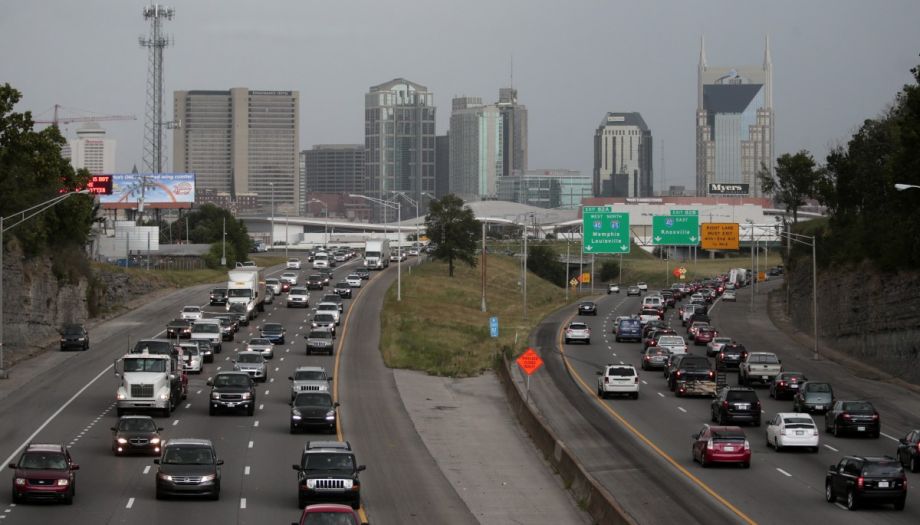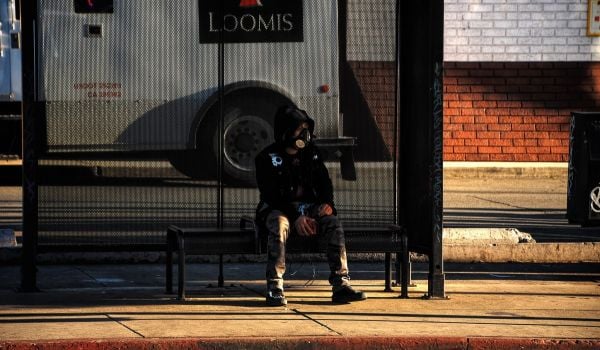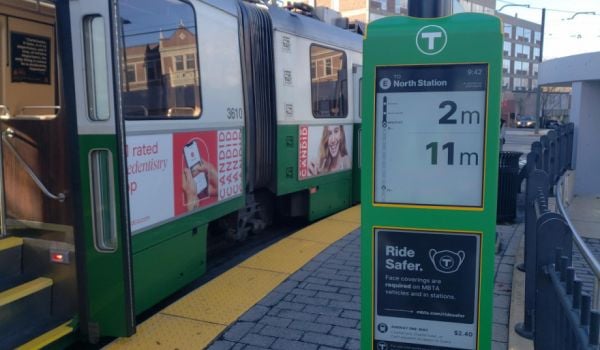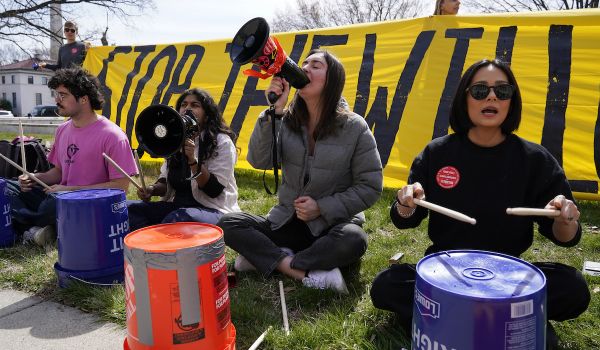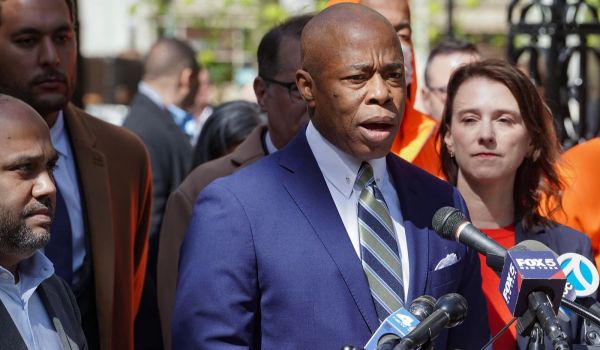On Thursday, Craig E. Philip was feeling “kind of depressed.”
It was just two days after Nashville voters had turned out in droves to reject a $5.4 billion transit plan that would have established new light rail systems and increased bus service throughout the fast-growing city. Turnout was high. And so was the two-to-one margin of defeat for proponents of the plan, who, maps showed, were clustered downtown, and surrounded by stiff opposition in the outlying neighborhoods.
In an op-ed for The Tennessean the week before the vote, Philip and four other Vanderbilt faculty the week before the vote expressed their confidence that the plan would reduce congestion and provide multiple convenient, affordable transportation options for everyone who needs them. “Expanding the system’s total capacity with light rail corridors will improve the quality of life for current and future residents who desire development that’s also pedestrian-oriented, not auto-centric,” they wrote.
By the time the polls opened, Philip, a professor of civil and environmental engineering at Vanderbilt University and director of the Vanderbilt Center for Transportation Research, had expected the opposition to win. But not by that much.
“The rural parts of the county certainly were never expected to support it,” Philip says. But the coalition behind the plan had been the same that elected former Mayor Megan Barry, who, just months after unveiling the Let’s Move Nashville plan, resigned amid a scandal over taxpayer-funded personal trips and an extramarital affair.
The coalition had been anchored by progressive voters and strong support in African-American neighborhoods. “And that coalition was completely fractured by the time the [transit] vote was taken,” Philip said.
On Wednesday, The Tennessean ran a post-mortem analysis, outlining six reasons why the referendum had failed. It concluded that, along with poor timing, flawed messaging, and the loss of support in black communities, “There was perhaps no more devastating single event to the pro-transit campaign” than Barry’s scandal and resignation.
“Yes, there were some unfortunate political events that happened, but at the same time, this wasn’t about one mayor’s plan,” says Ron Yearwood, the president of Transit Now Nashville, a nonprofit that has been advocating for transit awareness and infrastructure investments for the last decade.
Like Philip, Yearwood cites both general opposition to all tax increases and specific opposition to a sales-tax increase that would fund the transit plan as some of the reasons why it lost. But he also says that the campaign, which was backed strongly by pro-business groups, somehow failed to connect with larger concerns about the city’s growth.
“There’s a huge population in Nashville that will never take transit, so it was complicated to address how any plan is beneficial to the masses, and not just the people who are riding it,” Yearwood says.
What’s more, a range of progressive advocates seemed to stay out of the campaign, or opposed it altogether, Yearwood says. That included some affordable housing advocates and a group called the People’s Alliance for Transit, Housing, and Employment, which wanted to secure community benefits agreements and anti-displacement guarantees as part of the plan (the alliance did not take an official stance on the plan as voted upon) — the Purple Line under construction in the D.C. suburbs, for example, includes a commitment to zero-net loss of affordable housing in areas along its route.
While Let’s Move Nashville advocates argued that transit-oriented development along the proposed light-rail corridors would help the cause of affordable housing, others said it would simply fuel gentrification.
Austin Sauerbrei says that he and other housing advocates aren’t opposed to expanding the transit system. An organizer who worked with both the People’s Alliance for Transit, Housing, and Employment, who also works with a coalition called Welcome Home Nashville that’s calling for a $775 million investment in affordable-housing construction, Sauerbrei says that investment needs to be coupled with policies that help residents deal with rising property values, and money to support new housing supply for low-income people.
“I don’t think there’s a doubt on anybody’s mind, except maybe folks on the rar right wing, that we need a strong transit system and we need better bus service,” Sauerbrei says. “Everyone’s totally in favor of that … But without those [policies] in place, the light rail would spell massive displacement for poor and working class people.”
Tamika Douglas, a member of both the People’s Alliance and a local bus riders’ union, says there were aspects of the plan that she supported, like increased bus service across the city. And she believes transit in Nashville needs a dedicated revenue stream. But the larger, long term investment in light rail wasn’t going to serve certain neighborhoods, she says. Plus, the proposed sales tax hike was regressive, the plan didn’t address housing problems, and despite the community engagement efforts of the broader nMotion transit plan, the campaign seemed to Douglas like a top-down affair. She says she’s “proud” that Nashvillians turned out to defeat the referendum. Still, if a wider coalition of advocates could get together and develop a transit plan that addresses a wider range of issues, she’d be glad to support it.
“I know a lot of people think that because it didn’t pass, it’s over,” Douglas says. “I don’t want to say that it’s over. I think that we can still use this momentum to discuss it, but come up with a plan that’s equitable. That was one of my main turn-offs about this thing. I felt that it was not equitable.”
Erin Hafkenschiel, director of the Mayor’s Office of Transportation and Sustainability, took Wednesday off after working on the transit referendum nonstop, under two mayors, for the four months leading up to its defeat. She shared a statement from Mayor David Briley, who took over for Barry in March, and said she didn’t have much to add.
“We all can agree that we have to do something about traffic and transportation, but voters didn’t get behind this plan,” Briley’s statement said. “My responsibility as Mayor is to get back to the drawing board and find the common ground to develop consensus on a new way forward. Our transportation problems are not going away; in fact, we know they’re only going to get more challenging as we continue to grow. I’ll get back to work tomorrow on finding a solution for Nashville that we all can agree on.”
Nothing is likely to get off the ground anytime soon. Nashville voters will elect a new mayor at the end of May to finish Barry’s term, and then another one the following year.

Jared Brey is Next City's housing correspondent, based in Philadelphia. He is a former staff writer at Philadelphia magazine and PlanPhilly, and his work has appeared in Columbia Journalism Review, Landscape Architecture Magazine, U.S. News & World Report, Philadelphia Weekly, and other publications.
Follow Jared .(JavaScript must be enabled to view this email address)

